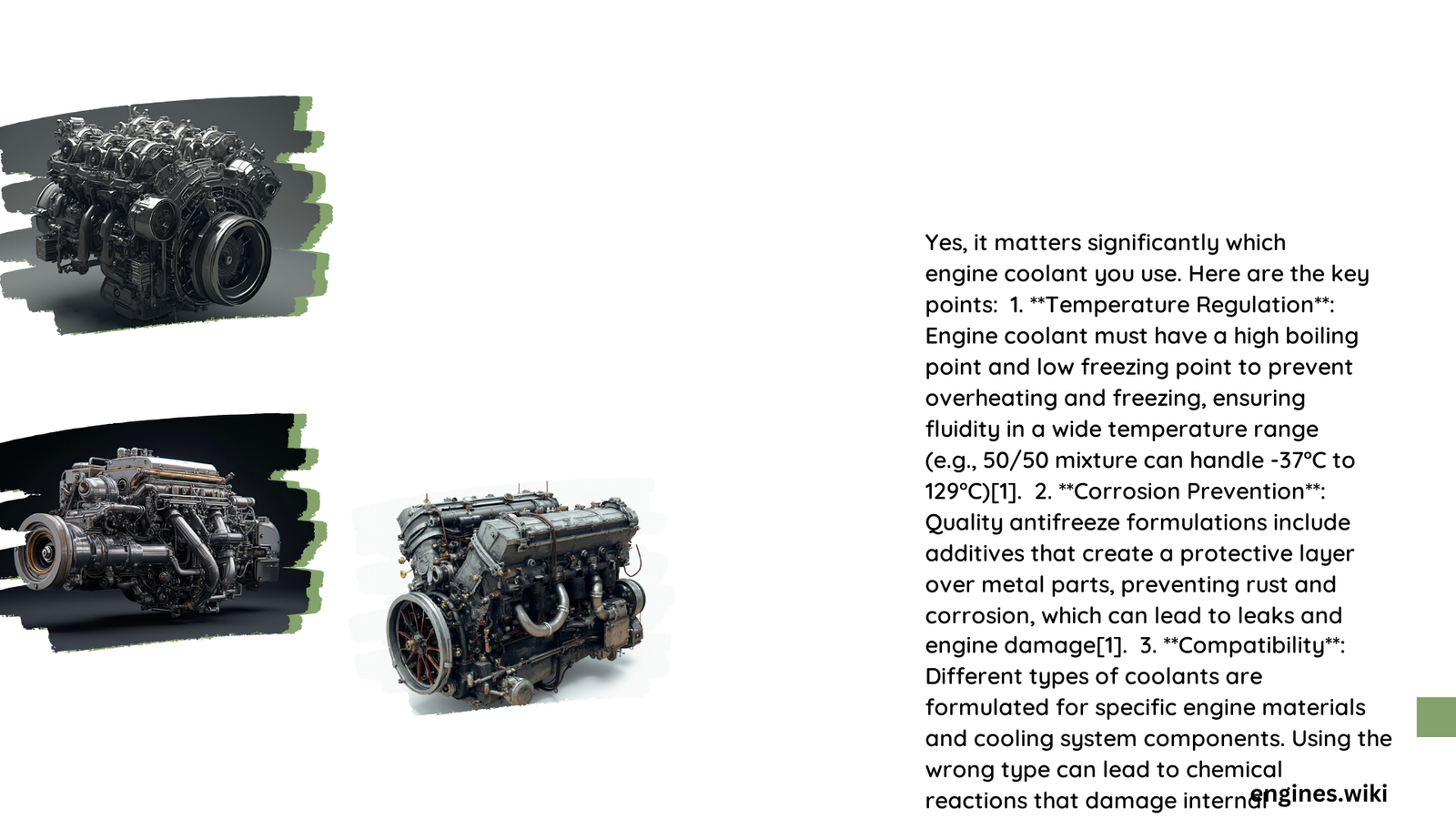Engine coolant selection is far more critical than most vehicle owners realize. Using the incorrect coolant can lead to significant mechanical damage, reduced engine performance, and potentially void your vehicle’s warranty. The wrong coolant can cause corrosion, scaling, and premature wear of critical engine components, resulting in expensive repairs that could have been easily prevented by understanding coolant compatibility and specifications.
What Makes Engine Coolant Selection Critical?
Why Does Coolant Type Matter for Your Vehicle?
Engine coolant is not a one-size-fits-all solution. Different vehicle manufacturers design specific coolant formulations to match their engine materials, cooling system designs, and performance requirements. The chemical composition, thermal properties, and additive packages vary significantly between coolant types.
Key Coolant Compatibility Factors
| Coolant Type | Base Composition | Color | Typical Vehicle Application |
|---|---|---|---|
| IAT (Inorganic Acid Technology) | Ethylene Glycol | Green | Older vehicles pre-2000 |
| OAT (Organic Acid Technology) | Propylene Glycol | Orange/Red | GM vehicles, modern cars |
| HOAT (Hybrid Organic Acid Technology) | Mixed Additives | Yellow/Orange | Ford, Chrysler, European vehicles |
What Happens When You Use Wrong Coolant?
Potential Risks of Incorrect Coolant
- Corrosion of Engine Components
- Degradation of metal surfaces
- Increased risk of radiator failure
-
Potential water pump damage
-
Chemical Incompatibility
- Breakdown of protective additives
- Reduced heat transfer efficiency
-
Potential gelation or precipitation of coolant
-
Financial Consequences
- Expensive engine repairs
- Potential warranty invalidation
- Reduced vehicle performance and longevity
How to Choose the Right Coolant?
Step-by-Step Selection Process
- Consult Vehicle Manual: Always check manufacturer recommendations
- Verify Coolant Color: Different colors indicate different formulations
- Check Compatibility: Ensure coolant matches your specific vehicle model
- Consider Service Intervals: Some coolants offer extended protection
Expert Recommendations for Coolant Selection
Specific Vehicle Brand Guidelines
- Volkswagen/Audi: Require specific G11, G12, G13 coolant series
- General Motors: Exclusively use DEX-COOL orange coolant
- Ford/Chrysler: Prefer HOAT coolant formulations
Technical Considerations for Coolant Performance
Thermal and Chemical Properties
- Boiling Point: Ranges from 212°F to 270°F
- Freezing Point: Typically between -34°F to -35°F
- Additive Composition: Determines corrosion protection and heat transfer efficiency
Cost of Incorrect Coolant Usage
Potential Repair Expenses
- Radiator Replacement: $300 – $1,000
- Water Pump Repair: $300 – $700
- Cooling System Flush: $100 – $250
Conclusion

Choosing the right engine coolant is not optional—it’s essential for maintaining your vehicle’s health and performance. Always prioritize manufacturer specifications and consult professionals when in doubt.
